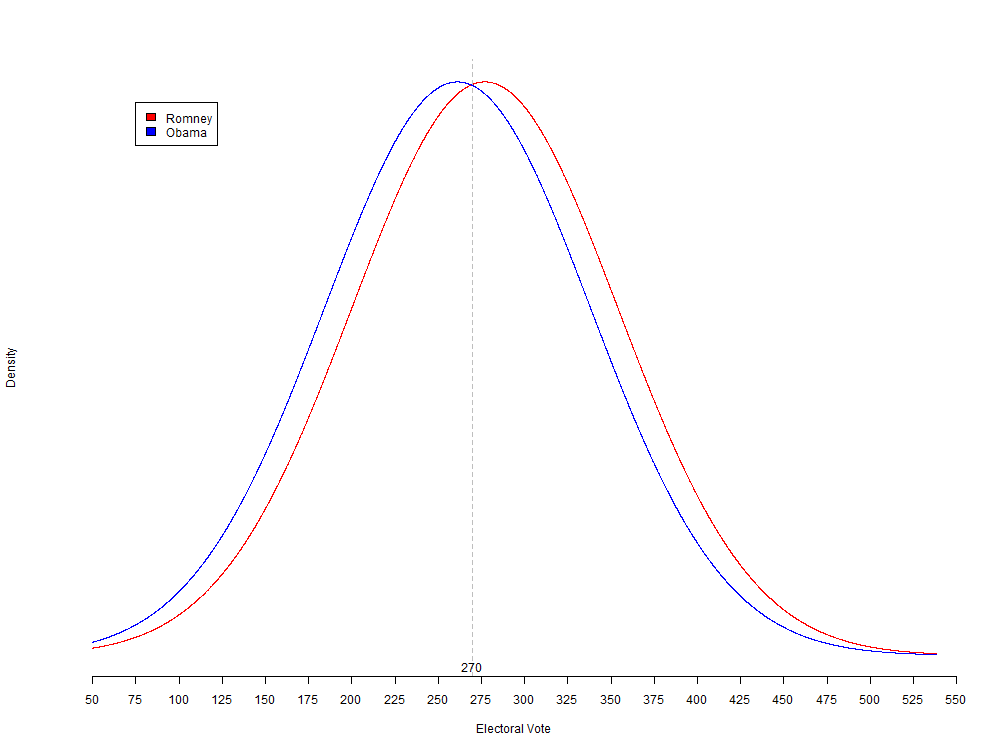Electoral College May Favor Romney
How would the Electoral College vote look if Mitt Romney and Barack Obama tied in the popular vote? Naturally there are myriad possible situations where candidates tie in the popular vote, and thus the possible distribution of Electoral College votes are legion. We sought to figure out which of these may be most likely.
I have to put a big (huge, leviathan, ungodly large) disclaimer here: this is not a projection for 2012. The numbers are predicated on what would likely happen if the popular vote split evenly between the candidates. This is a what if scenario, not an expectation.
The above figure shows the distributions of expected Electoral College outcomes under a 50/50 vote (that is, under a scenario agnostic to national swings). According to 1,000 simulations of state-level models, Romney finds himself winning the Electoral College (i.e., gaining more than 270 votes) about 53 percent of the time. Obama wins the Electoral College in roughly 47 percent of the simulations.
The reason for this major EC swing toward Romney is two-fold. First, in order to estimate a 50/50 popular vote, we had to scale up Romney’s support amongst white voters, under the assumption that support from black and Latino voters would stay roughly the same as 2008. That helps to push some narrow-win states for Obama, like North Carolina and Indiana, pretty firmly into Romney’s camp.
The second reason for some of the swing is reapportionment of electoral votes, which does Obama a slight disservice. Georgia, Texas and South Carolina, for instance, gain electoral votes, while Illinois, Iowa, New Jersey and New York lose them.
The general take away: in 2008, a 50/50 election would likely have still favored Obama electorally. In 2012, this does not seem to be the case. Rough parity in popular vote projections gives Romney a slight edge in the Electoral College.
Addendum: For those so inclined, the models we estimated for the simulations are fundamentals-based multilevel linear models, with uncertainty estimated at the state, regional and national level. As we further refine the models we will publish the state-level projections under the 50/50 scenario, and also accounting for a national swing.



[...] co-blogger at Margin of Error, Brice Acree, My co-blogger at Margin of Error, Brice Acree, tested who would likely win if the national vote were a tie, but all the voter movement since 2008 came [...]